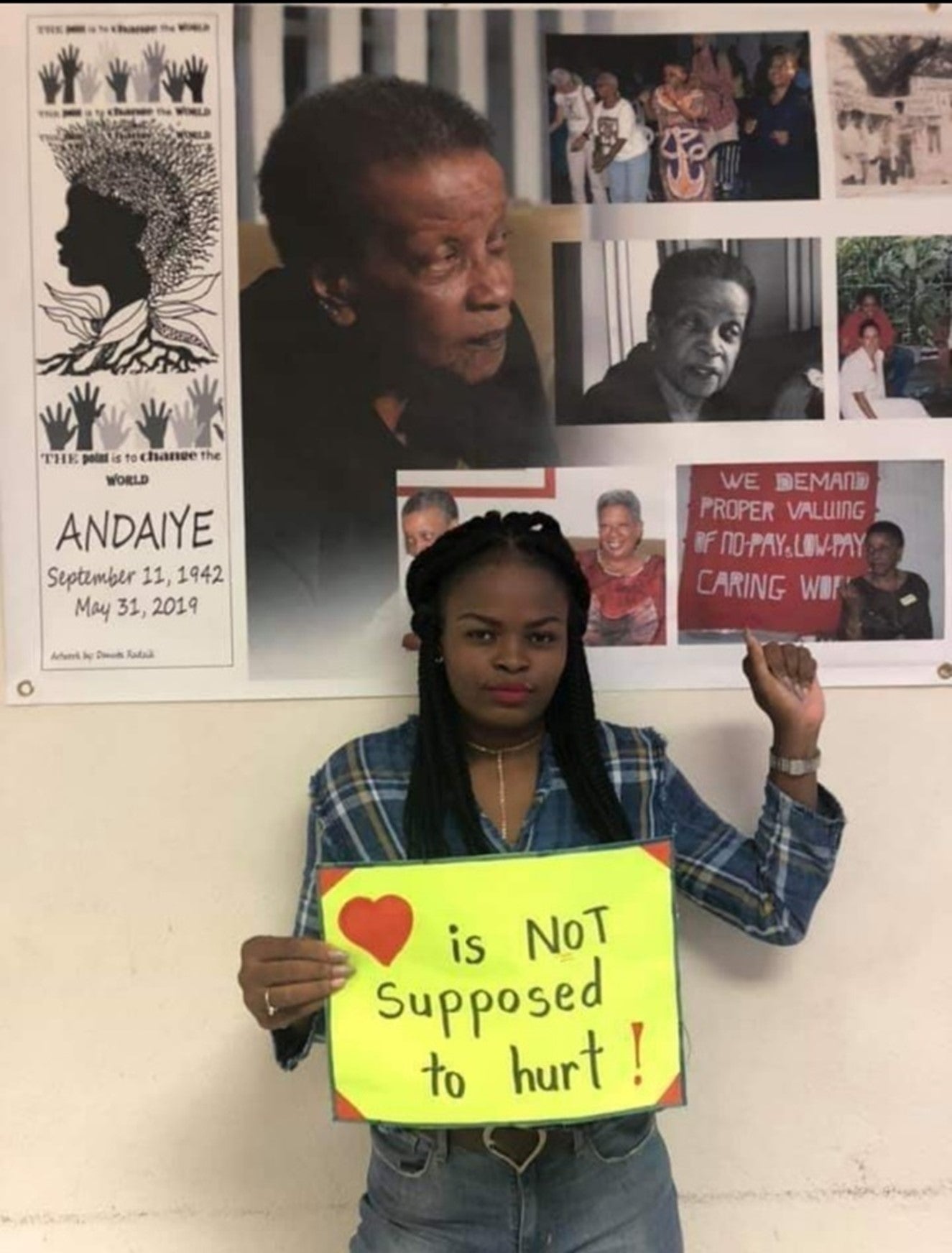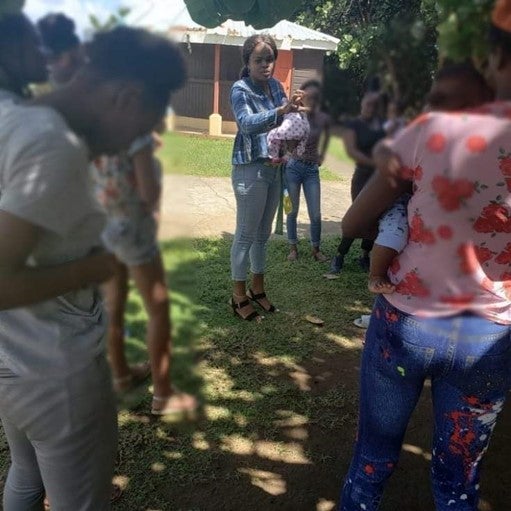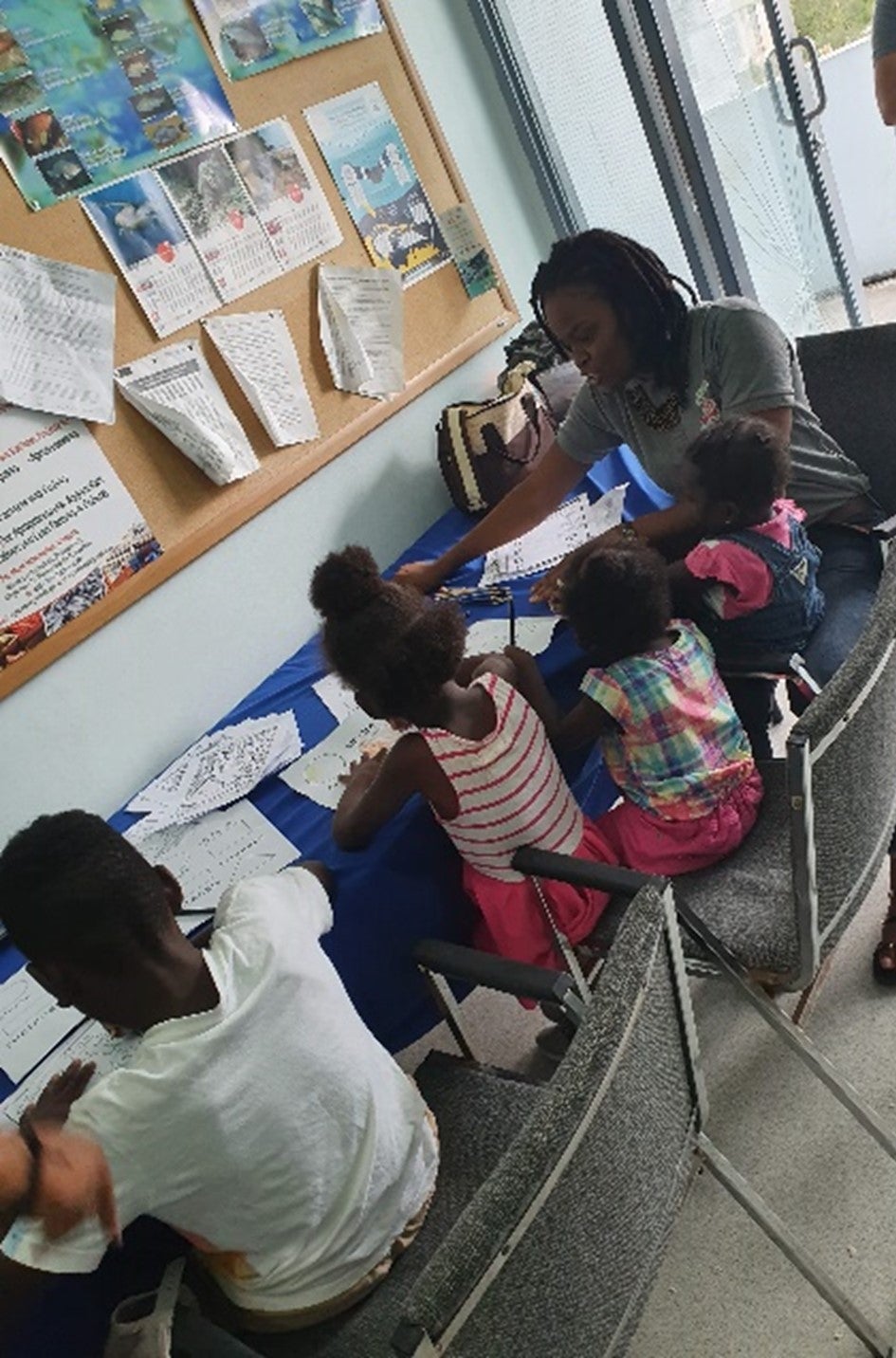From where I stand: “The work to end violence against women and girls in the Caribbean is an immense challenge. It takes partnership, a love for people and a want for positive change.”
Date:
Phylicia Alexander Lavia is the Foundress & Executive Director of Red Root SVG, a nonprofit in her home country of Saint Vincent & the Grenadines. Phylicia is a gender-based violence survivor and activist who advocates for the empowerment & support of underserved women, LGBTQ+ communities & children.

“I was a teen mom after getting pregnant at 14 years old and giving birth at 15 years. I am now a mother of three boys aged 15, 10 and 5 years old. I work with the government as a facilitator with the Adult and Continuing Education division [of the Ministry of Education in St. Vincent and the Grenadines] and recently transferred to the Curriculum Division. I’m currently studying at the University of the West Indies, pursuing a degree in Social Work with a minor in Youth Development so that I can better serve my community and people.
Growing up, I saw a lot of women in my immediate family and interacted with many women who have been in abusive relationship. I also experienced violence, so these experiences inspired me to establish RedRoot, an NGO with the mission of empowering women and children and fighting to end violence against women in St Vincent and the Grenadines., While some organizations may only focus on women, I also cater to children because of the increasing cases of sexual abuse in children.
Before I was registered, I organized protests to end child abuse in St Vincent. Then, in 2019, after being a part of the Caribbean Institute in Gender and Development (CIGAD) 13th Intensive training programme in Barbados, I left really inspired to do more work in ending violence against women and girls (VAWG) but I kept wondering, “How am I going to this?” [The Caribbean Institute in Gender & Development: An Intensive Training Programme is a regional, gender and development training programme that is held biannally by the Institute for Gender & Development Studies: Nita Barrow Unit of the University of the West Indies. UN Women Multi Country Office – Caribbean has been sponsoring this programme since 2003.]

Phylicia Alexander Lavia engaging with young women, including adolescent mothers in St. Vincent and the Grenadines/ Credit: RedRoot SVG
RedRoot continues to face several challenges in running the NGO. These include: our limited financial resources to support and continue our programmes to empower VAWG victims/survivors. The processes of the judicial system to report charges against offenders can be so lengthy and exposes victims. In my opinion, the sentences also passed down by the judicial system for VAWG seems like a slap on wrist while the legal costs to prosecute offenders continues to be a deterrent to victims of violence. Running an NGO, I continue to find it difficult to identify people with similar, genuine interests to this work of ending violence against women and girls. It can be such a sacrifice to individuals to give up their time and efforts without being paid or receiving a stipend.
Finally, it can be extremely challenging getting people in St. Vincent to see VAWG as a major issue because of the acceptance culture where violence is not considered something wrong. I could give several examples of these challenges. There was a case of a woman who was put out of her home by her partner who was abusive with her baby. We [Government of St. Vincent & the Grenadines] don’t have a safe house for battered women so we [RedRoot SVG] had to pick her up and take her to someone’s home temporarily. Then, we took her to the police station to make the report and then we provided her with money because she was unemployed. We also provided food because she had to stay an entire day at the police station to give several statements to different departments. Then, she had to go to the hospital to be examined and she had to wait for a long time like everyone else because it seems these cases are not recognized as emergencies. The victim then has to return the next day to the Sexual Offences Unit to give a report again. It is evident that the process is long, especially for mothers and those women who are unemployed which can deter them for dealing with this process. If we [RedRoot] don’t have the support or the finances, what can be done to help these women and girls?
Here at RedRoot, though we are based in Kingstown, we help women across the island and the small islands in the Grenadines. If women come to our office, we try to give them stipends for transportation, but we do need the financing. Our volunteers provide counselling services, and we also provide training in areas such as customer service, cosmetology and accounting to teach the women business skills. We also host empowerment sessions every Monday to teach women and girls about reproductive and mental health and provide unemployed women with food packages.
Our organisation advocates on behalf of victims of abuse by providing referrals and seeking government assistance for women to stay when they are kicked out of their homes by abusive partners. That assistance typically only last for three months but what happens next? There is nothing to teach them how to fend for themselves. This is one of the reasons, we have identified a property that we hope to buy and renovate into a shelter for battered women and girls. It hurts when I am unable to assist someone who feels trapped in abuse. We also hope to secure a permanent counselor to offer psychosocial support to the women.

Phylicia Alexander Lavia works with vulnerable groups such as children and victims/survivors of GBV/ Credit: RedRoot SVG
It has always been my goal to inspire others young girls who find themselves in my similar position as a high school dropout that returned to school and had to work really hard to get to where I am today. I am not afraid to tell my story and remind other women and girls not to give up on themselves. Things may happen, but we must keep going., This is why I am so passionate about this work.
The work to end violence against women and girls in the Caribbean is an immense challenge. It takes partnership, a love for people and a want for positive change. At times, you will feel like you’re the only one standing because I feel like this at times; however, once you have the drive, the joy you will experience in the little successes in EVAW will be great.”
Take action for Equality! Join Phylicia and UN Women Multi Country Office of the Caribbean on the #RoadToEquality. #NowIsNow #SheLeadsEquality
Phylicia Alexander Lavia is a gender-based violence survivor and the Foundress & Executive Director of Red Root SVG, a nonprofit in Saint Vincent & the Grenadines that empowers women and children who are victims of violence. Her work is directly related to many of the Sustainable Development Goals (SDGs), including SDG 5 on achieving gender equality, especially its target on eliminating all forms of violence against all women and girls in the public and private spheres and universal access to sexual and reproductive health and reproductive rights. Phylicia is being recognised under this year’s International Women’s Day Theme: “Gender equality today for a sustainable tomorrow”, and she continues to call to end violence against women and girls today and everyday.
UN Women encourages civil society organisations whose work has a direct impact on those at-risk or affected by family violence, in particular child survivors, women survivors and their children, families, groups facing multiple and intersecting forms of discrimination/marginalisation to apply for small grants under the Spotlight Initiative and UN Trust Fund to end Violence against women. |